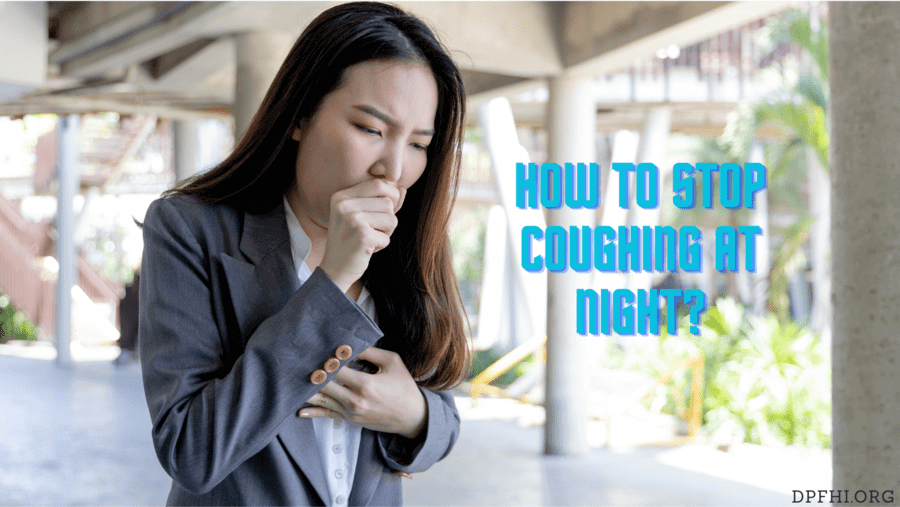How To Stop Coughing At Night? Coughing at night can be a very frustrating and disruptive experience, affecting both your sleep and overall well-being. It can be caused by various factors, including allergies, infections, or postnasal drip, but the good news is that there are many effective remedies to help you get a peaceful night’s rest. In this article, we will explore ten strategies to help you stop coughing at night and enjoy a peaceful sleep.
If you are having coughing problem at night while you are sleeping then you can check out our top 10 helpful cures to stop coughing at night.
How To Stop Coughing At Night?
- Hydration
Staying hydrated is crucial when dealing with a nighttime cough. Drinking plenty of fluids throughout the day can help keep your throat moist and reduce irritation. Warm herbal teas, honey, or simply water can work wonders. However, avoid excessive liquids right before bedtime to minimize the chances of waking up to urinate.
- Elevate Your Head
Propping up your upper body with an extra pillow or sleeping with your head elevated can help prevent postnasal drip and reduce nighttime coughing. This position can prevent mucus from flowing into your throat and causing irritation.
- Humidify Your Bedroom
Using a humidifier in your bedroom can add moisture to the air, which can soothe a dry, irritated throat. This is especially helpful in dry climates or during the winter months when indoor heating can dry out the air.
- Steam Therapy
Inhaling steam can be a quick and effective way to relieve coughing at night. You can take a hot shower or use a bowl of hot water, placing a towel over your head to trap the steam. Be cautious not to burn yourself, and inhale the steam for about 10-15 minutes to help soothe your throat.
- Gargle with Salt Water
A saltwater gargle can help reduce inflammation and irritation in your throat. Mix half a teaspoon of salt in a glass of warm water and gargle several times a day, especially before bedtime.
- Cough Drops or Lozenges
Over-the-counter cough drops or lozenges can provide temporary relief from nighttime coughing by soothing your throat. Look for those containing ingredients like menthol or honey.
- Nasal Irrigation
If postnasal drip is contributing to your nighttime cough, consider using a saline nasal spray or a neti pot to irrigate your nasal passages. This can help reduce mucus and congestion, which may alleviate your cough.
- Allergy Management
If allergies are the culprit, it’s essential to identify and manage your triggers. Consult an allergist, use allergy-friendly bedding, and consider using an air purifier to minimize allergens in your bedroom.
- Medications
In some cases, your healthcare provider may recommend over-the-counter or prescription medications to manage your nighttime cough. Antihistamines, decongestants, or cough suppressants may be useful, but it’s crucial to use them under the guidance of a medical professional.
- Consult a Doctor
If your nighttime cough persists despite trying various remedies, or if it is accompanied by other concerning symptoms such as fever, shortness of breath, or chest pain, it’s crucial to consult a healthcare professional. These symptoms may be indicative of a more serious underlying condition that requires medical attention.
Final Thoughts
Coughing at night can be a significant impediment to getting the restful sleep you need for optimal health. The good news is that numerous remedies can help you put an end to nighttime coughing, allowing you to wake up refreshed and ready to tackle the day. Remember that what works best may vary from person to person, so don’t hesitate to try different methods or consult a healthcare provider for personalized advice. A good night’s sleep awaits you with the right approach to managing nighttime coughing.
